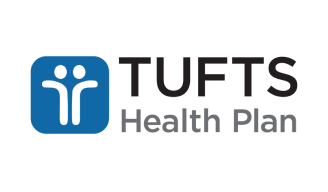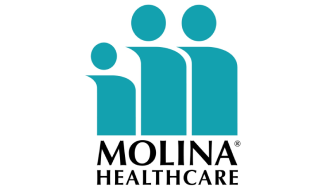Portland, Maine, United States
Pine Tree Recovery Center
Verified
Verified
This provider’s information has been quality-checked by Recovery.com’s Research Team for accuracy and completeness, including center verification through appropriate third-party organizations.
Joint Commission Accredited
The Joint Commission accreditation is a voluntary, objective process that evaluates and accredits healthcare organizations (like treatment centers) based on performance standards designed to improve quality and safety for patients. To be accredited means the treatment center has been found to meet the Commission's standards for quality and safety in patient care.
Provider's Policy
Pine Tree Recovery Center will contact your insurance provider to learn more about your benefits and how you are covered. Their Treatment Advisors will share all your insurance benefit information with you in simple language so you can understand exactly what your coverage includes.
Estimated Cash Pay Rate
The cost listed here ($3,000 - $6,000) is an estimate of the cash pay price. Center pricing can vary based on program and length of stay. Contact the center for more information. Recovery.com strives for price transparency so you can make an informed decision.
About Pine Tree Recovery Center
Pine Tree Recovery provides detox, residential treatment, and an intensive outpatient program (IOP) for addiction and dual-diagnoses. They use a multi-pronged approach with medication-assisted treatment (MAT), evidence-based therapies, holistic care, and support groups, most of which are gender specific. Pine Tree employs licensed doctors, therapists, and nurses to offer clients an in-depth recovery experience. Treatment begins with thorough medical, psychosocial, and psychological evaluations. Clients also have their own case manager, who manages and tailors treatment to unique needs.
Medically Monitored Detox and Residential Treatment
Pine Tree Recovery’s clinical team monitors detox and administers medications for greater safety and comfort if needed or desired. Detox typically lasts 3-7 days, though the total time depends on each client. Detoxing begins on the 1st floor of Pine Tree’s facility. Clients have the option of a private room during detox and residential care, with on-site chefs preparing nutritious meals throughout the process. After residential treatment, clients can begin IOP on the 2nd floor.
Intensive Outpatient And Therapeutic Care
IOP at Pine Tree Recovery lasts for 8 weeks. Sessions take place on site, Monday-Thursday. Clients attend IOP for 3 hours, with times available in the morning, afternoon, and evening. They begin 12-Step work during IOP, helping clients build community and relapse prevention skills. Pine Tree Recovery can arrange travel to their center and provides meals for IOP clients. If they don’t have one already, IOP clients are also assigned a case manager. Virtual outpatient services are also available.
Recover in a Comfortable Setting
Pine Tree Recovery prioritizes comfort and safety during treatment. They offer optional private rooms, chef-prepared meals, and comfortable lounge areas. Their group sizes in IOP stay small for a more intimate experience, with each group welcoming 12 clients at a time. Pine Tree Recovery also offers a family program, with psychoeducational workshops and support through case management.
What to Expect When Arrive at Pine Tree Recovery Center
Read More

Insurance Accepted
Provider's Policy:Pine Tree Recovery Center will contact your insurance provider to learn more about your benefits and how you are covered. Their Treatment Advisors will share all your insurance benefit information with you in simple language so you can understand exactly what your coverage includes.
Personalized Detox, Residential Treatment, and Aftercare Services
The medical and psychological evaluations Pine Tree provides help customize detox and residential treatment to each clients’ circumstance. The clinicians at Pine Tree use the results of each evaluation to guide treatment throughout detox, residential, and into aftercare. During detox, clients receive attentive monitoring and medication-assisted treatment as needed to alleviate withdrawal symptoms.
3-Module IOP
Pine Tree Recovery offers clients a structured IOP with 3 modules: 12-Step Implementation in Daily Life, a Clinical module, and a Health and Wellness module. Their modules focus on healing the mind, body, and spirit, with therapies like cognitive behavioral therapy (CBT), acceptance and commitment therapy (ACT), and motivational interviewing techniques. Their final module emphasizes wellness with activities like yoga, Reiki, breathwork, and meditation.
Case Management Services
Pine Tree Recovery assigns each client a case manager. Case managers walk through treatment with their client, communicating between their treatment team and answering questions or concerns. Case managers also facilitate aftercare, whether clients transition into Pine Tree Recovery’s IOP or go elsewhere for further care.
Trauma-Informed Therapy
Pine Tree Recovery uses trauma-informed care to help heal the underlying causes of addiction. Their therapists use therapies like eye movement desensitization and reprocessing (EMDR), 1:1 care, and trauma-focused group therapies focusing on trauma. Pine Tree’s relapse prevention workshops can help clients recognize why past trauma might affect their recovery and give them the tools to overcome challenges as they arise.

Center Overview
Estimated Cash Pay Rate
Young Adults
Emerging adults ages 18-25 receive treatment catered to the unique challenges of early adulthood, like college, risky behaviors, and vocational struggles.
LGBTQ+
Addiction and mental illnesses in the LGBTQ+ community must be treated with an affirming, safe, and relevant approach, which many centers provide.
Men and Women
Men and women attend treatment for addiction in a co-ed setting, going to therapy groups together to share experiences, struggles, and successes.
Midlife Adults
For adults ages 40+, treatment shifts to focus on the unique challenges, blocks, and risk factors of their age group, and unites peers in a similar community.

Treatment Focus
This center treats primary substance use disorders and co-occurring mental health conditions. Your treatment plan addresses each condition at once with personalized, compassionate care for comprehensive healing.

Care Options








Treatment
Specializations
Alcohol
Using alcohol as a coping mechanism, or drinking excessively throughout the week, signals an alcohol use disorder.
Benzodiazepines
Benzodiazepines are prescribed to treat anxiety and sleep issues. They are highly habit forming, and their abuse can cause mood changes and poor judgement.
Co-Occurring Disorders
A person with multiple mental health diagnoses, such as addiction and depression, has co-occurring disorders also called dual diagnosis.
Drug Addiction
Drug addiction is the excessive and repetitive use of substances, despite harmful consequences to a person's life, health, and relationships.
Heroin
Heroin is a highly addictive and illegal opioid. It can cause insomnia, collapsed veins, heart issues, and additional mental health issues.
Methamphetamine
Methamphetamine, or meth, increases energy, agitation, and paranoia. Long-term use can result in severe physical and mental health issues.
Opioids
Opioids produce pain-relief and euphoria, which can lead to addiction. This class of drugs includes prescribed medication and the illegal drug heroin.
Prescription Drugs
It's possible to abuse any drug, even prescribed ones. If you crave a medication, or regularly take it more than directed, you may have an addiction.
Approaches
Evidence-Based
A combination of scientifically rooted therapies and treatments make up evidence-based care, defined by their measured and proven results.
Holistic
A non-medicinal, wellness-focused approach that aims to align the mind, body, and spirit for deep and lasting healing.
Twelve Step
Incorporating spirituality, community, and responsibility, 12-Step philosophies prioritize the guidance of a Higher Power and a continuation of 12-Step practices.
Therapies
1-on-1 Counseling
Patient and therapist meet 1-on-1 to work through difficult emotions and behavioral challenges in a personal, private setting.
Meditation & Mindfulness
A practiced state of mind that brings patients to the present. It allows them to become fully aware of themselves, their feelings, and the present moment.
Trauma-Specific Therapy
This form of talk therapy addresses any childhood trauma at the root of a patient's current diagnosis.
Online Therapy
Patients can connect with a therapist via videochat, messaging, email, or phone. Remote therapy makes treatment more accessible.
Art Therapy
Visual art invites patients to examine the emotions within their work, focusing on the process of creativity and its gentle therapeutic power.
Family Therapy
Family therapy addresses group dynamics within a family system, with a focus on improving communication and interrupting unhealthy relationship patterns.
Life Skills
Teaching life skills like cooking, cleaning, clear communication, and even basic math provides a strong foundation for continued recovery.
Medication-Assisted Treatment
Combined with behavioral therapy, prescribed medications can enhance treatment by relieving withdrawal symptoms and focus patients on their recovery.
Motivational Interviewing and Enhancement Therapy (MET)
This approach is based on idea that motivation to change comes from within. Providers use a conversational framework that may help you commit to recovery.
Conditions We Treat
Grief and Loss
Grief is a natural reaction to loss, but severe grief can interfere with your ability to function. You can get treatment for this condition.
Anger
Although anger itself isn't a disorder, it can get out of hand. If this feeling interferes with your relationships and daily functioning, treatment can help.
Anxiety
Anxiety is a common mental health condition that can include excessive worry, panic attacks, physical tension, and increased blood pressure.
Bipolar
This mental health condition is characterized by extreme mood swings between depression, mania, and remission.
Codependency
Codependency is a pattern of emotional dependence and controlling behavior. It's most common among people with addicted loved ones.
Depression
Symptoms of depression may include fatigue, a sense of numbness, and loss of interest in activities. This condition can range from mild to severe.
Post Traumatic Stress Disorder
PTSD is a long-term mental health issue caused by a disturbing event or events. Symptoms include anxiety, dissociation, flashbacks, and intrusive thoughts.
Stress
Stress is a natural reaction to challenges, and it can even help you adapt. However, chronic stress can cause physical and mental health issues.
Trauma
Some traumatic events are so disturbing that they cause long-term mental health problems. Those ongoing issues can also be referred to as "trauma."
Substances We Treat
Alcohol
Using alcohol as a coping mechanism, or drinking excessively throughout the week, signals an alcohol use disorder.
Benzodiazepines
Benzodiazepines are prescribed to treat anxiety and sleep issues. They are highly habit forming, and their abuse can cause mood changes and poor judgement.
Chronic Relapse
Consistent relapse occurs repeatedly, after partial recovery from addiction. This condition requires long-term treatment.
Co-Occurring Disorders
A person with multiple mental health diagnoses, such as addiction and depression, has co-occurring disorders also called dual diagnosis.
Cocaine
Cocaine is a stimulant with euphoric effects. Agitation, muscle ticks, psychosis, and heart issues are common symptoms of cocaine abuse.
Drug Addiction
Drug addiction is the excessive and repetitive use of substances, despite harmful consequences to a person's life, health, and relationships.
Ecstasy
Ecstasy is a stimulant that causes intense euphoria and heightened awareness. Abuse of this drug can trigger depression, insomnia, and memory problems.
Heroin
Heroin is a highly addictive and illegal opioid. It can cause insomnia, collapsed veins, heart issues, and additional mental health issues.
Psychedelics
Hallucinogenic drugs—like LSD—cause euphoria and increased sensory experiences. When abused, they can lead to depression and psychosis.
Aftercare
Experience
Personal Amenities
Amenities
Special Considerations
Executive Program
Addiction and mental health treatment for executives typically involves high discretion, greater technology access, and more private, 1-on-1 care.
Flexible technology policies
Centers with flexible technology policies allow professionals to stay in touch with work and give patients a greater sense of connection and normalcy.
Activities
Yoga
Yoga is both a physical and spiritual practice. It includes a flow of movement, breathing techniques, and meditation.
Professional Staff

Kerry MacDonald
Executive Director
RD, LDN

Randi Bruneau
LCSW, LADC, CCS
Clinical Director

Mandy Bracy
Director of Nursing
RN

Bobby Taylor
Clinical Supervisor
LMSW, LADC, CCS
View More Team Members
Accommodations
Food & Nutrition
Treatment
Value
Pros
- Addressed Trauma (6)
- Treated With Respect (23)
- Excellent & Effective Treatment Programming (15)
- Personalized (11)
Cons
- Limited Time to Work (3)
See More
Pizza Artist
Morgan
Rachel
CC
Megan
We love hearing about your treatment experience
Help individuals and families seeking treatment by sharing your first-hand experience with this treatment provider. Review Guidelines.














































